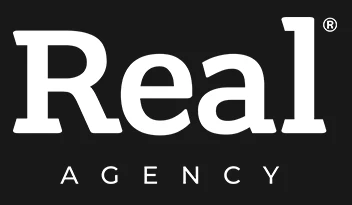Shopify Plus: A Look At The eCommerce Platform’s Pros And Cons
In the world of eCommerce platforms, Shopify Plus is a relatively new release, it has been specifically designed in order to meet the needs of mid-level and enterprise-level online retailers.
Shopify Plus is one of the most appealing to merchants who are looking for a platform with much lower technical overheads, managed scalability and simple admin and order management functionality. Currently going through a growth phase, lots of mid-level online retailers are moving over to Shopify Plus, It is particularly popular across the pond over in the US as well known merchants who have migrated include the likes of Gymshark, Skinny Dip, Citizen, The New York Times, Pavers and Hawkers.
Whilst it’s not a complete direct competitor to Magento 2 Enterprise Edition (due to Magento having increased flexibility and vastly different proposition), the main platform we work with here at Media Lounge.
If there’s any clack of complex requirements from the merchant around the core features of Magento such as managing large catalogues, non-standard product attributes and product types, multi-store requirements, complex integrations with bespoke systems etc, or any significant ongoing development requirements, Shopify Plus is likely the perfect solution.
Pros Of Using Shopify Plus
Shopify has a lot of great benefits for those retailers that are suitable for the platform, so of which include:
Competitive Pricing / Cost of Ownership
The pricing structure for Shopify Plus starts from around $2000 flat fee per month which most merchants have been on and increases based on GMV (0.25% of transactions through Shopify) and the number of storefronts you have. Once you have exceeded a turnover of somewhere in the region of £$800,000 per month online, the pricing increases fairly considerably, with a maximum possible cost of around $500,000 per year.
The main thing here to remember with Shopify Plus is that there are no ongoing maintenance costs, no support retainers, zero hosting fees etc. The only likely additional charge comes if you are using an external payment gateway (not Shopify payments, its own gateway), which incurs a 0.15% transaction fee.
Obviously, most merchants will ideally want their developer or agency for ad-hoc front-end tweaks, complex module installs etc – but you also have an account manager on hand from Shopify to help with a lot of these tasks.
A Hosted SaaS Platform
By using a hosted, SaaS platform like Shopify, as opposed to a self-hosted solution like Magento, it means that you could be taking the time and money that you would normally be spending on hosting management or preparing for peaks etc and putting that into your marketing and product development.
Although there are benefits to a self-hosted solution, for merchants who are really fed up of managing hosting relationships, dealing with downtime and handling issues with peaks, Shopify Plus is a very appealing proposition (in a similar way to Demandware / Salesforce Commerce Cloud).
Easy To Manage / Maintain
Shopify Plus has a very low maintenance overhead, with no system updates, module upgrades or security patches to worry about. All of this is handled by Shopify as part of your license cost.
In addition to this, Shopify Plus users are assigned their own Account Manager who is able to help with technical issues and provide basic guidance around growing the store (discovering the right apps, front-end suggestions, fixing bugs and issues etc). This reduces the need for any kind of support/maintenance retainer, which would be required ( and in some cases mandatory) with other platforms.
Shopify Plus also has a very straightforward admin interface, which is essentially the exact same as the Shopify back-end. This makes things such as order management, product management, creating and also editing categories etc, a lot easier than some of the other common platforms on the market.
This simplicity may not suit all businesses, but if it fits your requirements, it’s likely to make your teams’ lives so much easier.
Scalable Platform
Shopify Plus is also designed to scale, taking the overall pressure off eCommerce teams around key trading peaks. This is covered as part of the monthly license fee and is managed fully by Shopify’s internal engineering team.
So, Who is Shopify Plus suitable for?
The real target market for Shopify Plus is split into two categories – large brands with a small and simple catalogue and also a growing / mid-level single currency/region retailer with relatively simple requirements and product catalogues.
Over time, Shopify Plus will develop their catalogue management for example how it handles things like product attributes and product types and multi-store capabilities to increase suitability for much larger and complex projects. Although there are third parties and workaround for things like internationalisation and complex catalogues we would say it’s not really a competitor to solutions such as Magento or Demandware / Salesforce Commerce Cloud.
How Does Shopify Plus Compare to Magento?
In a lot of cases where people are looking at Shopify Plus, they have also looked at Magento 2 CE or EE, we briefly touched on this earlier and these two systems aren’t exactly direct competitors, purely due to the fact Shopify Plus is built for complex stores, international stores or B2B stores currently – which are Magento’s biggest strengths.
All that being said, with the use of third parties and apps, there aren’t many things that Shopify Plus can’t achieve – it’s just a case of it not being as naturally flexible as Magneto – with examples of native functionality in Magento that would be tricky to match with Shopify Plus including visual merchandising, all of the new B2B features, tiered pricing, attribute management, options for managing different customer groups, some of the native products types, managing international nuances etc…
There are various things that Shopify Plus has natively that Magento doesn’t for example direct Amazon integration, but they’re less likely to be show stoppers or something that can’t be achieved to the same / a higher level with Magento.
Shopify Plus is a very strong solution for mid-level retailer and brands who generally don’t have complex requirements.
Tweet this now
Conclusion
Shopify Plus is a very strong solution for mid-level retailer and brands who generally don’t have complex requirements. Taking Magento, for example, Shopify Plus is going to require a lot less maintenance and on-going development work, plus a lesser degree of technical knowledge.


